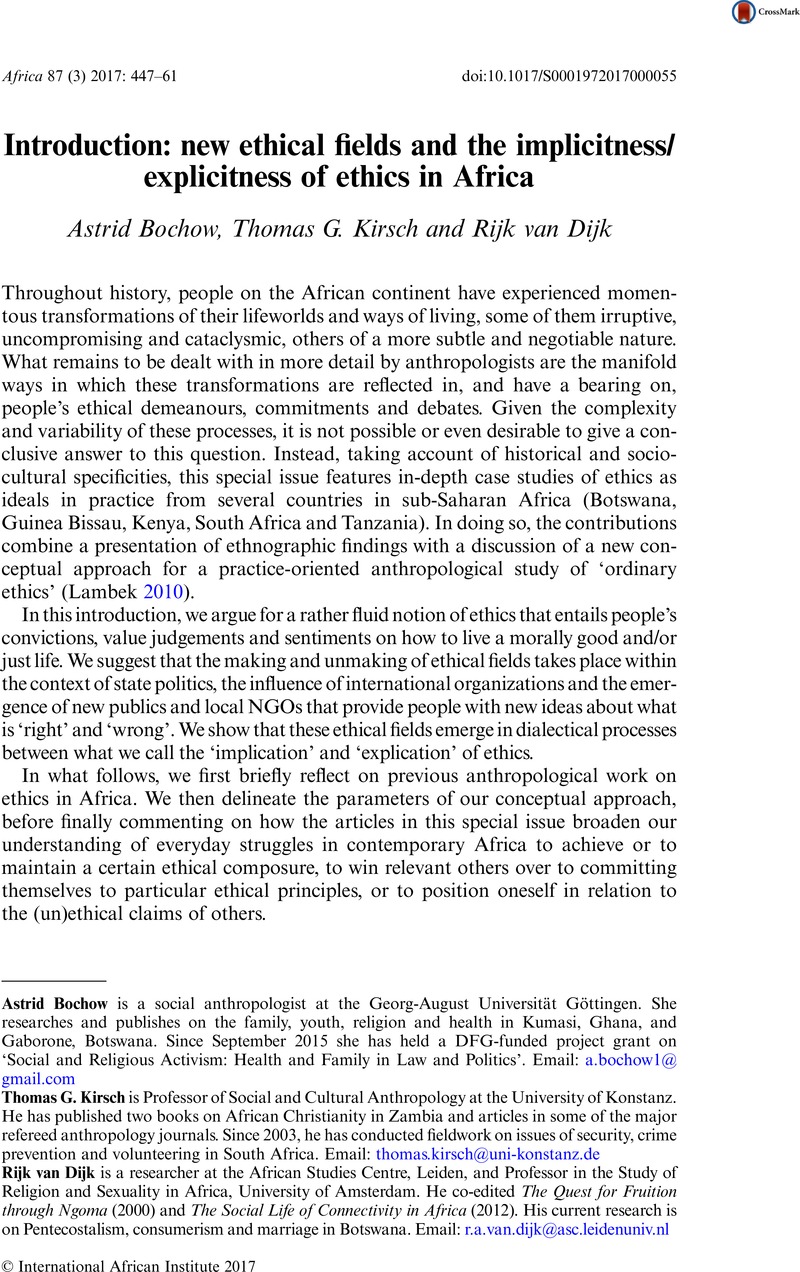Crossref Citations
This article has been cited by the following publications. This list is generated based on data provided by Crossref.
Allain, Rosalie
2018.
Adebanwi, Wale (ed.) 2017. The political economy of everyday life in Africa: beyond the margins. Martlesham: James Currey. 384 pp. Hb.: $74.46. ISBN: 9781847011657..
Social Anthropology,
Vol. 26,
Issue. 4,
p.
574.
Williams Green, Leanne
2021.
Marrying in a single moment: Zimbabwean Baptist ethics and the management of kin relations.
Africa,
Vol. 91,
Issue. 5,
p.
893.
van Dijk, Rijk
Kirsch, Thomas G.
and
Duarte dos Santos, Franziska
2021.
Family Resemblances in Action.
Journal of Religion in Africa,
Vol. 49,
Issue. 3-4,
p.
233.
Ansell, Nicola
Mwathunga, Evance
Hajdu, Flora
Robson, Elsbeth
Hlabana, Thandie
van Blerk, Lorraine
and
Hemsteede, Roeland
2023.
Ethical Principles, Social Harm and the Economic Relations of Research: Negotiating Ethics Committee Requirements and Community Expectations in Ethnographic Research in Rural Malawi.
Qualitative Inquiry,
Vol. 29,
Issue. 6,
p.
725.
Bartelink, Brenda
2024.
Unsettled grounds: religion, gender and sexual nationalism in a Dutch city.
Religion, State and Society,
Vol. 52,
Issue. 5,
p.
467.



